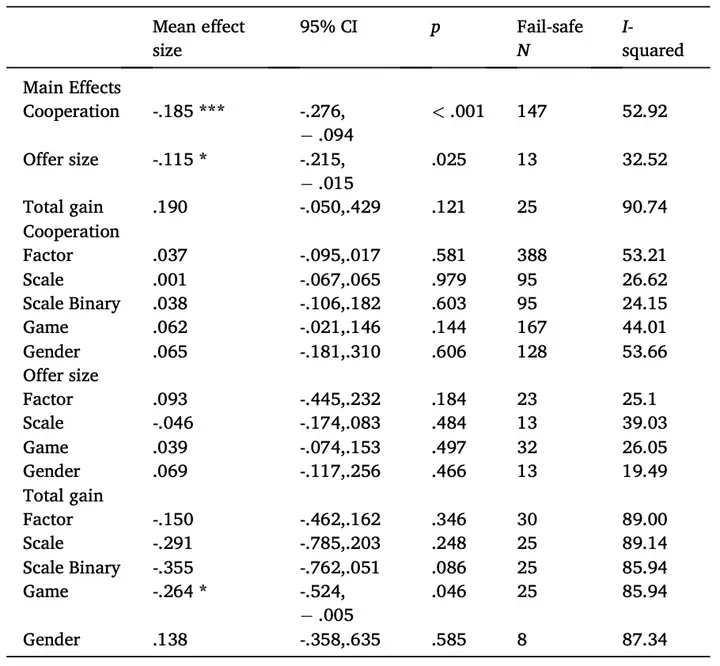
Abstract
Psychopathy is a personality construct that encompasses a constellation of traits reflecting emotional dysfunction and antisocial behavior. This constellation has consistently been linked to poor decision-making, often focused on personal and monetary gains at the others’ expense. However, there remains a lack of a systematic examination of how psychopathy is related to the prospect of obtaining monetary gains as a function of social context. Therefore, we conducted a series of meta-analyses to elucidate these relationships. Our findings indicated that elevated levels of psychopathy are related to a reduced tendency to cooperate with others, and no difference in the extent to which knowledge of others’ retaliation possibilities informs decision-making. However, the type of social economic decision-making game employed moderated the association between psychopathic traits and total gain obtained, suggesting that context plays a key role in moderating the link between psychopathic features and decision-making. These findings advance our understanding of psychopathy and open new avenues for research on adaptive and maladaptive social behavior in individuals with high levels of psychopathic traits.